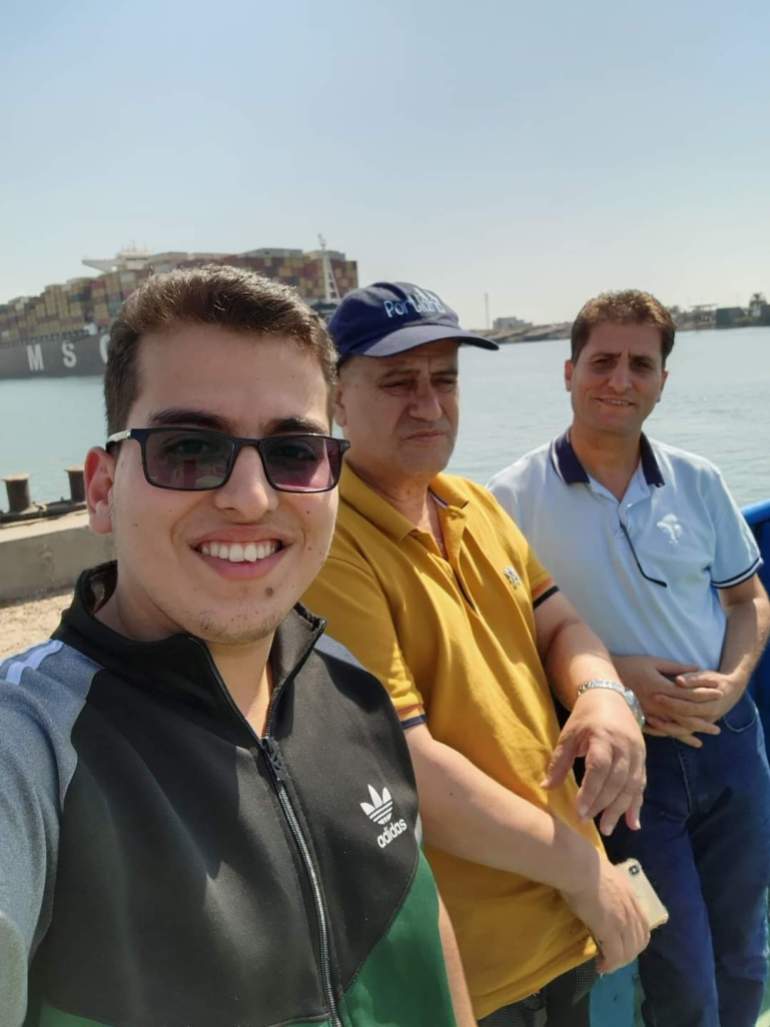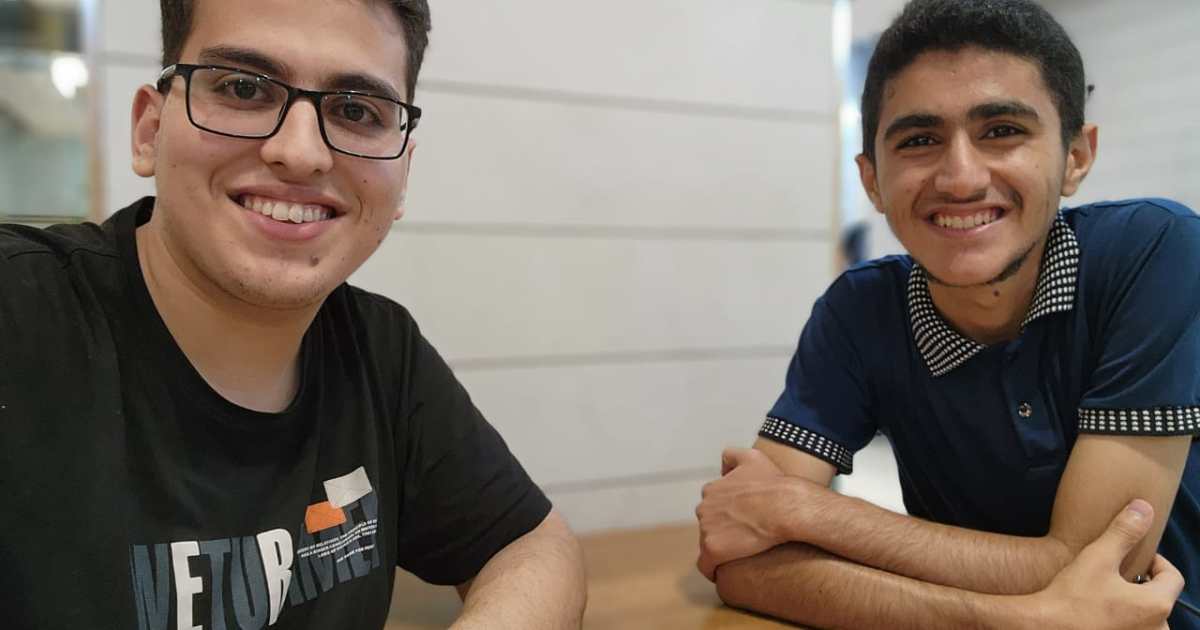Last week, an Israeli air raid levelled a family home in Deir el-Balah, a central town in Gaza.
It belonged to the Mattars.
Al-Hassan Mattar, a 21-year-old studying English literature, was killed, along with his father, sister, grandmother and several relatives who were seeking shelter with them.
Video footage of the aftermath shows the home in ruins. In a widely shared 16-second clip, a young Palestinian man can be seen carrying a body wrapped in a red blanket out of the rubble.
The town has come under repeated attacks throughout the war. It was hit again late on Monday, with casualties reported.
Israeli warplanes flatten a house for the Mattar family in Deir el-Balah upon the heads of its civilian occupants.#StrikeForGaza pic.twitter.com/cShwG3vy7E
— Quds News Network (@QudsNen) December 11, 2023
Abubaker Abed, a friend of Al-Hassan’s, has written about his loss. Before the war, the pair would talk about football and obsess over what then seemed like big events, like when Al-Hassan got laser eye surgery. After the latest episode of the Israel-Palestine conflict escalated, their conversations turned to their ambitions. Al-Hassan said he wanted to leave Gaza.
In his last post on X, shared days before he was killed, Al-Hassan said: “What is happening is not normal, the [bombardment is] very violent without stopping. God is enough, and yes, the agent.”
Here is Abed’s tribute to whom he affectionately called Habibi Al-Hassan.
Deir el-Balah, Gaza – The last time I saw Al-Hassan was on the fifth day of the temporary truce. It was November 28, a Tuesday.
We were at his house, we were in good spirits and we felt at peace, compared with the weeks before.
His younger brother Kareem, a cheeky 19-year-old with blue eyes, brown hair and a round face was there along with Osama Abu-Omra, another friend. We roasted sweet potatoes and onions on a small fire and made tea.
His father, Weam, looked at us from the balcony and smiled. Tongue-in-cheek, he asked me: “How is Al-Hassan’s work with the coal fire today?”
“Al-Hassan is the best,” I replied.
Then, his father left with a smile on his face.
Al-Hassan lived in a modest two-storey villa. His grandmother lived downstairs. Outside, the yard was full of parsley and mint. Before the war, Al-Hassan and I used to hang out on the balcony, watch SpongeBob, eat crisps and popcorn, or study for our university exams.
After sunset prayers, Al-Hassan brought me six eggs to cook for dinner. It was all that was left in his fridge. Back then, six eggs would have cost about a dollar. Today, as food shortages get worse, they’d be about $4.
“Are you sure you can cook them properly?” Al-Hassan asked me jokingly.
“Just bring me butter, salt and pepper,” I said.
He nodded his head and hummed in disbelief. “We will see.”
We ate the eggs with a bit of bread. Al-Hassan said it was delicious.
“God willing, this war will end very soon and we will have times like this together again, in peace and comfort,” he said.
At about 7pm, we said our goodbyes and I left.
If I had known that would be the last time I saw him, I would have stayed there and died with him.
Would you believe that this is only one missile !!
Deir Albalah#Gaza_Genocide pic.twitter.com/Fp4o8SSWJh— Alhassan W. M. Mattar 🇵🇸 (@Alhassan_Wm_Ma) November 9, 2023
(The X post above: On November 9, Al-Hassan Mattar shared his footage of an alleged Israeli attack in his hometown.)
We became good friends almost three years ago, one February morning.
I had arrived to my first lecture in English language and literature at the Islamic University of Gaza, which is now a pile of rubble after Israeli air strikes.
I was late and perched on a seat in the front row. Al-Hassan was sat behind but when he caught my eye, he looked at me knowingly. His expression was friendly. We recognised one another. We had attended a UNRWA school together.
After the lecture, he said it was a “beautiful coincidence” to be studying together. I said I felt like the lucky one. We caught up and reminisced about our childhood.
He was both boisterous and polite. He was brilliant at maths. He loved reading books about animals in the school library during breaks.

A day later, Al-Hassan visited me at my house.
He begged me to join him for a spin around Deir el-Balah in his father’s car. I said no at first, I was shy. But Al-Hassan, with all his confidence and excited energy, convinced me.
We discussed our university life and our plans. After finishing his degree, he wanted to study business and eventually work in Oman.
He was his father’s soulmate. He loved to tell stories about his family. He woke up early and loved to watch films, especially documentaries about astronomy. He was a big fan of Liverpool FC and in particular, [the player] Sadio Mane.
We were opposites. Him an extrovert, me an introvert. I used to wake up late and stay up late, studying and building my English language skills.
But we bonded over football. Like him, I’m an avid fan of the Premier League and love Liverpool and Chelsea.
He was killed on Monday, just before noon. He was 21. His father Weam, sister Tala and grandmother were also killed.
It took me more than a day to confirm whether he had died or not. Such is the chaos of war – that finding out if a loved one has passed becomes a mission in and of itself.
A day before, he tried to call me several times. But the telecommunications systems here have been hit by bombs and most calls aren’t getting through.
I logged onto Twitter and saw he had messaged me.
“I really tried hard to call you. If you really have a drop of blood, you should have called me.” Al-Hassan always loved to guilt trip me.
On that fateful day, I woke early with a worried feeling in my chest. Perhaps it was a sign.
I made my breakfast – a slice of bread with one tomato and some canned beef, the kind of meat we used to give to cats and dogs before the war began.
At around 11:30am, I heard an explosion. A few minutes later, my friend Abdul-Rahman messaged me. “The latest air strike was at the Mattar family home, in Al-Beeah Street.”
I jumped from my seat and told my family. I tried to call Al-Hassan. There was no response.
I ran madly to the Al-Aqsa Martyrs Hospital and started asking random people: ”Where is the Mattar family?”
“We don’t know but someone called Kareem is inside the ICU”, someone said. I don’t remember much about them.
They were referring to Al-Hassan’s brother, who thankfully wasn’t badly injured.
I carried on asking after Al-Hassan.
I saw injured people laying on the floor, crying faces in the corridors, blood splashed across rooms where patients were treated.
I rushed to the emergency tent.
”I am Al-Hassan’s friend. Where is he?” I kept saying.
There was no sign of my friend. I went home in tears.
The next morning, I went back to the hospital. My body felt weak and my heart was racing. I prayed with all my might that he was not among those killed.
I asked a hospital official about him. He politely asked me to wait but I couldn’t and so I hurried to the emergency tent again, but got no clear answer.
I took myself to the refrigerators where bodies are stored.
My nerves were shot but I looked at one, and then another, and did not see his name written on the shrouds. My hands shook. I took a breath and crept towards the final body. Again, his name was not marked.
I felt overwhelmed by what I’d seen. I also hoped there was still a chance my friend was alive.
I went back to the hospital official and asked for confirmation that Al-Hassan was okay. He told me he was killed. I looked up at the sky and asked him again.
”Wait a few seconds,” he said. Each second felt like a year.
His next sentence pierced my heart.
“Yes, Al-Hassan Weam Mostafa Mattar was martyred yesterday.”
I collapsed in a corner of the hospital.
A week before he was killed. Al-Hassan called me. He told me that if he survived the war, he would try and fulfil his dream, to leave Gaza for Oman.
I can’t believe he’s gone. I don’t recognise myself any more.
Sumber: www.aljazeera.com
 Skip to content
Skip to content

